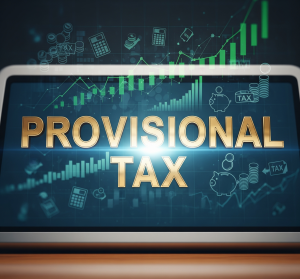What’s the Difference Between a Bookkeeper and an Accountant?

“Finance is effectively the rhythm section of a company. It creates the company cadence that every company needs.” (John Baule, CPA and ecommerce expert)
You can’t grow a business without a clear handle on your numbers. But too many business owners still confuse bookkeeping and accounting. These roles do have some overlap, but they serve different purposes. Assigning tasks to the correct person means better insights, sharper decisions, and a clearer path to growth.
In a nutshell
A bookkeeper keeps your financial records accurate and current. They handle the day-to-day recording of transactions, issuing of invoices, reconciling of bank statements, and making sure everything lines up. Think of it as the hygiene of your business finances. If it’s not being done regularly, problems start to build up fast. Bookkeeping doesn’t involve complex analysis or forecasting – but without it, the numbers your accountant sees will likely be wrong, or missing entirely.
An accountant works further up the chain. Using the data that bookkeepers maintain, they prepare financial statements, analyse performance, give tax advice, and help shape business strategy. A good accountant doesn’t just analyse tax obligations, they help you understand your business and shape strategy for the future. That could mean spotting ways to reduce your tax bill, warning you about cash flow risks, or helping you build the case for a bank loan or investment round.
Why does this distinction matter?
With margins so tight nowadays, many people are asking their bookkeeper to perform both roles. This may seem to make sense, but it’s like asking your mechanic to design your next car. When the work gets confused, important details fall through the cracks – and that confusion grows as your business does.
When they’re starting out, many smaller businesses get by with only a bookkeeper. At that stage, the financial picture is usually simple: a few suppliers, a few clients, not too many moving parts. But as the numbers grow, so does the complexity. You start needing help with budgeting, forecasting, asset management, and tax structuring. That’s when your business begins to need financial insight.
Hiring an accountant doesn’t mean replacing your bookkeeper. It means building a team where each role is clear, and the right questions get asked at the right time. To do that, businesses need to stop seeing the bookkeeper as a junior accountant, or the accountant as an expensive version of a data clerk.
Bound by the law
There’s also a regulatory edge. Bookkeepers aren’t usually qualified to give tax advice or submit signed-off financials. If they do, and it’s wrong, you can be held liable.
Accountants, on the other hand, carry the qualifications, experience, registrations and liability cover to advise on matters that can make or break your year-end. Getting that wrong can mean more than just fines and tax penalties, it can lead to missed deductions, misreported income, or worse.
So, how do you decide who you need?
Start by asking what you’re struggling with. If you’re drowning in paperwork, if supplier payments and invoices are slipping through the cracks, or if your reports don’t match your bank balance, that’s a bookkeeping issue. But if you don’t know how much tax you’ll owe in six months, if you’re unsure whether you can afford to hire, or if the bank asks for documents you can’t produce, you’re in need of an accountant.
It’s also worth looking at timing. Bookkeeping is a weekly or even daily discipline. Accounting is more periodic – think monthly reports, quarterly planning, and annual tax returns. Many accounting firms offer bookkeeping as an add on service, but you should not allow this to blur the lines between the two roles. A well-run business usually benefits from both.
Finally, don’t fall for the idea that either role is a luxury. Clean books keep you out of trouble. Smart accounting helps you make the most of what you have. Together, they turn your financials from a source of stress into a foundation for growth.









